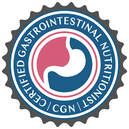|
Low carb diets are trending everywhere right now, especially the latest Carnivore Diet, which is comprised of eating only meat and animal products. And although low carb, high protein diets do help support weight loss increasing satiety and therefore naturally reducing calorie intake, it doesn't mean staying on them long term continues to be beneficial for health. Rather they may be doing your gut more harm than good, especially if consumed for the long term. Research has found that diets high in fat (especially saturated fat) and protein, and consequentially low in fiber, increases the abundance of pro-inflammatory gram negative bacteria in the gut called Bacteroides and other bile loving proteobacteria like Bilophila. These bugs produce a very pro-inflammatory endotoxin called lipopolysaccharide (LPS) which causes inflammation at the gut lining, leading to leaky gut, and increased absorption of LPS into systemic circulation. LPS in elevated amounts plays an important role in the development of IBD and other metabolic diseases. Furthermore, artificial sweeteners often used in low carb diets, continue to shift the gut microbiome towards dysbiosis (an imbalance of good vs bad bacteria), favoring gram negative bacteria. On the other hand, a diet rich in complex carbohydrates and fibers (including prebiotic and polyphenol rich plant foods) provides a good source of microbiota accessible carbs, which supports the growth of gram positive bacteria such as commonly known Bifidobacterium and Lactobacilli as well as other beneficial bacteria such as Akkermansia muciniphila. These beneficial microbes provide many metabolic benefits to the host. So how much fat and protein should an adult consume daily? Research found that diets consisting of 40% or more of calories from fat, shifted the microbiome unfavorably. As for protein, it seems a moderate intake is ideal, neither too little or too much. Since protein is essential for optimal metabolic health too little can impair cellular growth and repair, digestion, thyroid function, and fluid balance in the body. Too much protein on the other hand can lead to protein putrefaction in the colon and increase the risk for colon cancer. Therefore, I generally recommend 25-30g of protein per meal (or about 15-20% of calories) from a variety of different sources, including both plant-based and grass-fed/wild-caught meats and seafood. To sum it up, good bacteria like a varied whole foods, plant focused diet, with moderate amounts of quality fat and protein. Therefore, if you have been following various versions of low carb/high protein diets for many years and still are not feeling your best, then it may be time to switch it up for your gut health and ultimately YOUR health. Instead of opting for three slices of bacon, sausage, and coffee with coconut cream for breakfast, add some COLOR and some SPICE! A microbiome loving breakfast could include poached eggs over curried lentils and spinach with a side of fresh fruit. However, if you struggle with IBS or SIBO, inflammation caused by poorly controlled Celiac Disease or IBD, or a stealth infection, then a diet high in fiber rich foods is not indicated until treated and inflammation has subsided. Speak with your dietitian if you have concerns. What are your thoughts? I love to hear from you!
Eat Happy, Selva
2 Comments
4/28/2022 11:03:22 pm
I have a bias toward the carnivore diet but I agree with you it is not always ideal. I do think it can work though without comlex carbs and this is how. You have to make sure you are getting enough collagen, which is sort of the meatlovers version of fibre. There is another thing that works which is HMO and or unpateurised milk and butter. The butter provides the butyrate and the milk or HMO provides food for the bacteria.
Reply
Leave a Reply. |
AuthorLike to read? Then get your evidence based nutrition information here! All posts written by Selva Wohlgemuth, MS, RDN Functional Nutritionist & Clinical Dietitian Archives
August 2023
Categories
All
|



 RSS Feed
RSS Feed


